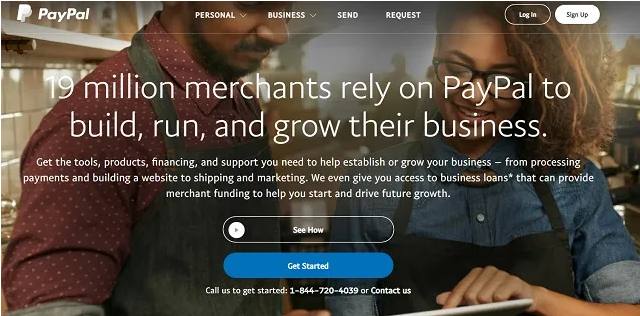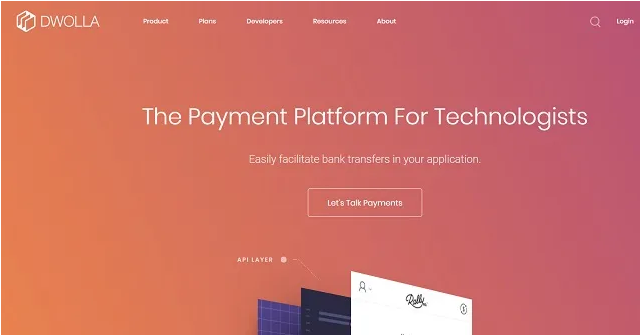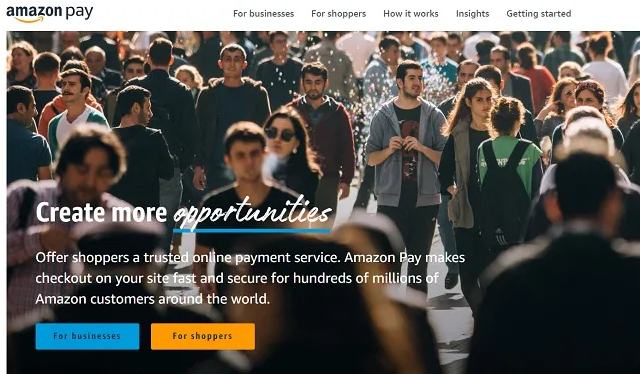Even though Stripe isn’t well-known, it is a global leader in online payments and has had a significant impact on the financial world. Stripe’s technology stack can’t be beat, and it’s seen as a standard in on boarding merchants, making payments easy, and finding scams. However, it could be better in some ways. Some rivals charge a lot less and provide more flexibility. So, if you’re looking for the best Stripe options that will work well with your business, check out our thorough list.
Best Stripe Alternatives You Can Try in 2023
Here, we’ve compiled the seven best Stripe options after considering several important factors, including service, pricing, global reach, developer friendliness, and more. You can also find a list of payment providers for different areas below, which will help you find the best alternative to Stripe in your own country.
Why Should You Need Stripe Competitors or Alternatives?
There are several reasons you should look into alternatives to Stripe. You may want a payment system that offers you more flexibility to handle payments, or you may have set your sights on cutting down on the processing fee (Stripe charges 2.9% plus 30 for each successful charge).
Given its higher processing fee, many retailers find Stripe’s pricing to be too high. Also, Stripe is still yet to be available in a lot of countries, so e-commerce sites are looking for a good alternative to Stripe and looking for a cheaper alternative to Stripe? Or something more adaptable that can work well with your needs? Look no further than these top-rated options.
1. PayPal
PayPal is one of the world’s oldest fintech companies, so it knows a lot about how to handle online payments and stop scams. The reason this makes PayPal one of the best Stripe options is because of this. In terms of pricing, Stripe and PayPal both charge a processing fee that is similar to that of 2.9% and a flat fee of $0.3 for every order. But the global reach of these two services is what makes them different.
In comparison to Stripe, PayPal is much larger and accessible in almost every country in the world. If you run an online business that has people from all over the world, PayPal is, without a doubt, the best way to accept payments. PayPal is also very developer-friendly, which is similar to Stripe for the most part.
There are hundreds of themes that make it easy to add PayPal checkout to your online business. If you want reliability and a global reach, PayPal is a great alternative to Stripe.
Pros:
- Huge global reach, Instant payment
- Advanced fraud detection, POS integration
- Checkout templates, No monthly charge
- Fast ACH transfer and Recurring billing, Scalable based on business size,
- Access to developer tools
Cons:
- Limited seller protection
- Phone-based customer service is not always consistent
Pricing: 2.9% + $0.30; 2.7% for swiping card on POS machine
2. Adyen
Our next pick for a Stripe alternative is Adyen. It looks like a small company, but it has a lot of retailers. Along with that, Adyen is one of the best payment providers for little and medium-sized companies. In comparison to Stripe, the reason is its incredibly low processing fee.
It costs a flat rate of $0.25 + $0.12 for ACH payments and 0.6% + $0.12 for Visa and Mastercard cards. A processing fee of up to 3.95% plus $0.12 is added to all Amex cards. Another thing that Adyen does is offer business accounts, which give you more control over your online account.
But remember that Adyen charges $120 monthly if your company doesn’t do at least 1,000 transactions. Adyen does, however, have a big global reach that covers Africa, Europe, and other parts of Asia. In conclusion, Adyen is a less expensive alternative to Stripe if you are a small business owner in one of those areas.
Pros:
- Low price and best for small businesses
- Offers merchant account
- Great global reach
- Best for Africa and Asia
- Fraud prevention technology, Easy to integrate
Cons:
- The layout needs improvements
Pricing: 0.6% + $0.12 for Visa and Mastercard; 3.95% + $0.12 for Amex
3. Braintree
When it comes to options for Stripe, Braintree, which is also part of PayPal, is our next pick. Braintree is a clear choice as an alternative to Stripe in terms of what it offers. To begin, the pricing is very similar to other payment companies. For every transaction, you have to pay a processing fee of 2.9% plus $0.30.
The checkout form can be customized to your liking, and you can access payment options as part of that. You can also set up automatic billing and an ACH transfer. Braintree’s global reach is significantly larger than Stripe’s because of PayPal’s backing.
The best part about Braintree is that, unlike Stripe, it doesn’t charge extra for billing, invoicing, and other complicated APIs. Braintree is one of the best options for Stripe, and you should check it out.
Pros:
- Easy integration, Better global reach than Stripe, Fraud detection
- Payment templates, Recurring billing
- Fast ACH transfer, Invoicing, and billing
- Access advanced APIs without additional cost
Cons:
- Doesn’t accept American express
Pricing: 2.9% + $0.30
4. Square
Together, Square and Stripe began in 2009 at the same time. Since then, they have been fierce rivals. Both provide great payment services with the best technology in their fields and a lot of options for collecting payments. It’s similar to Stripe in terms of how it works.
The best part of Square is its point-of-sale (POS) payment system, which is far superior to Stripe’s. Regarding pricing, each purchase made through either service’s payment method incurs a processing fee of 2.9% plus $0.3. However, remember that Square doesn’t allow payments within apps; it can only handle credit card and mobile cash transfers.
Additionally, aside from the US, UK, and Australia, Square does not have a very large global reach. However, Square is best for companies that want to set up payments immediately and without hassle. From sales in-person to online payments, you get the best of both worlds.
Pros:
- Best for both in-person POS sales and online payments
- Seamless integration, excellent Fraud detection
- Recurring billing, Quick ACH transfer
Cons:
- Account stability issues
- Not suitable for big companies
Pricing: 2.9% + $0.3
5. Dwolla
The next payment company we’ll talk about is Dwolla, which is one of the cheapest options for Stripe in the US. For ACH transfers, it supports and offers a business account. Dwolla is one of the best service providers for developers because it has great guidance and can be customized based on your needs.
In terms of pricing markup, the cost is low in comparison to Stripe, which is great. When you use its platform to buy something, you have to pay a processing fee of 0.5% plus $0.5. Plus, there is no regular fee or any other charge that you might not know about.
Without paying an extra fee, you also have access to several software tools and features. But keep in mind that you can only use Dwolla in the US. So, Dwolla is a great low-cost alternative to Stripe if you’re in the US and want a payment provider.
Pros:
- Cheapest Stripe alternative
- Provides merchant account Trusted fraud prevention
- Seamless integration
- Custom payment setup
- No monthly fee
Cons:
- Doesn’t let users add a credit card as a backup funding source
Pricing: 0.5% + $0.5
6. Amazon Payments
Another service similar to Stripe, Amazon Payments, has a broad global reach and offers various features specific to each country. To begin, Amazon Payments’ SDK and APIs make it easy for developers to add Amazon Payments to their websites. For a global business to grow, it’s also helpful that you can change how payments are set up in your currency.
In terms of the processing fee, Amazon Payments charges 1.95 percent plus any taxes that are due. A part of that includes:
- AI-powered scam detection.
- Billing.
- Payment handling.
- A lot of other features without an additional charge.
After all of that, Stripe’s global reach is the main difference between Amazon Payments and Stripe. If Stripe isn’t cutting it for you, Amazon Payments is a simple way to fix the problem.
Pros:
- Huge global reach
- Top-notch fraud detection using AI and ML
- POS integration, No monthly charge
- Hassle-free Subscription management
- Scalable based on business size
- Access to developer tools
Cons:
- Handles fewer payment types
Pricing: 1.95% plus applicable taxes
7. Authorize.net
It has been offering its service for more than 20 years, making it one of the longest payment platforms on the web. Authorize.net is only a payment platform; it does not handle business accounts. Stripe, on the other hand, is a complete payment provider that takes care of everything, from the shopping cart to the checkout.
At its core, Authorize.net lets you authorize credit card and bitcoin transactions if you already have a payment system set up. Each transaction costs only 10 cents, and the monthly fee is 25 dollars. A part of that is the use of cutting-edge scam identification and risk reduction tools to safeguard the deals.
The only bad thing about it is that you can only get it in some countries except the USA, Australia, and Canada. Stripe easily wins in terms of global reach. Still, Authorize.net is a great, low-cost alternative to Stripe if you need a paymentsystem for your online business.
Pros:
- Best and cheapest payment gateway
- Advanced fraud detection
- Easy recurring payments
- Invoicing,
- Simple checkout
- Accepts most credit cards
Cons:
- The administrator homepage looks cluttered
Pricing: $0.10 per transaction; $25 flat monthly fee










